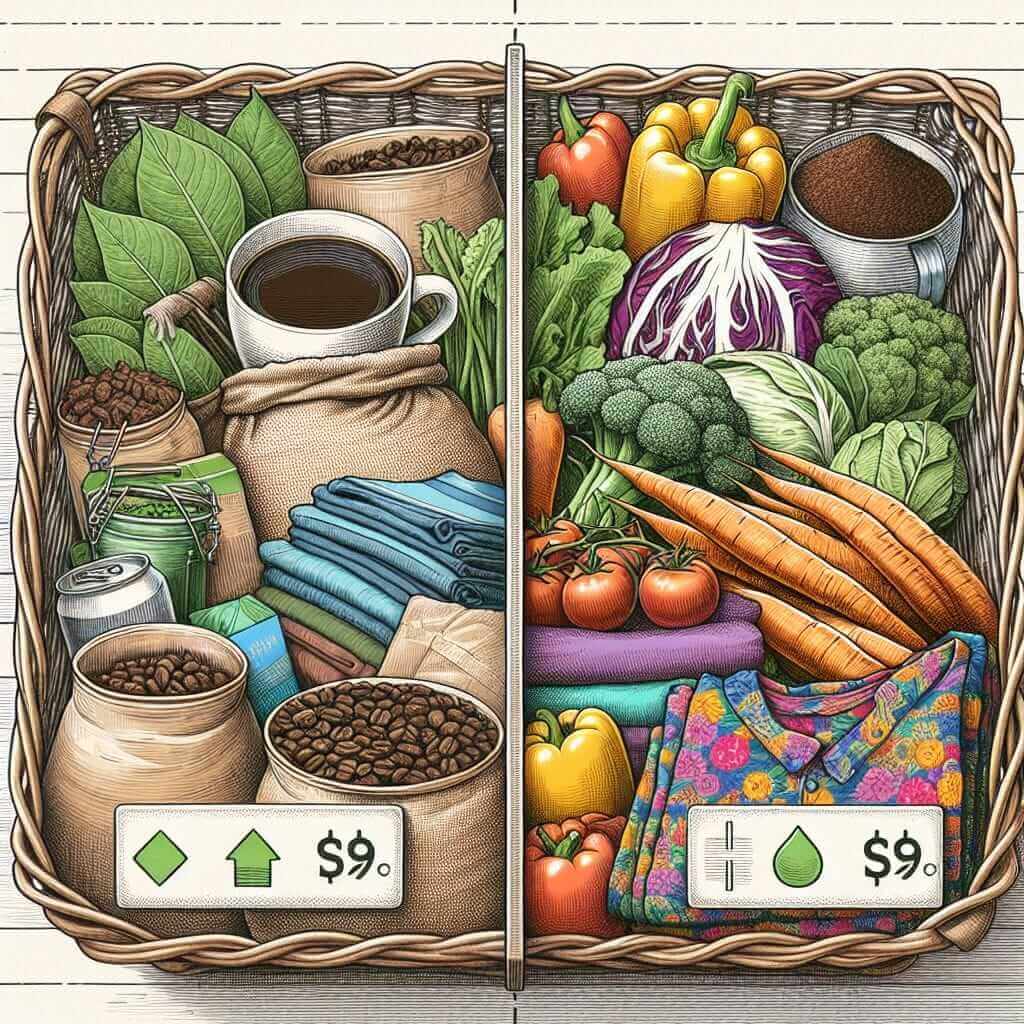Ethical consumerism, a topic often appearing in IELTS Writing Task 2, delves into the conscious choices individuals make when purchasing goods and services. These choices are influenced by a desire to support businesses that align with their ethical values, such as fair trade practices, environmental sustainability, and responsible sourcing.
The frequency of this topic in IELTS exams highlights its significance in contemporary society. Let’s explore some potential essay prompts related to ethical consumerism:
- To what extent do you agree that consumers have a responsibility to support ethical businesses, even if it means paying higher prices?
- Some argue that ethical consumerism is ineffective in driving real change. Discuss both views and give your opinion.
- With increasing globalization, is it becoming more challenging for consumers to make ethical purchasing decisions?
Analyzing an IELTS Essay Prompt
We will focus on the first prompt: To what extent do you agree that consumers have a responsibility to support ethical businesses, even if it means paying higher prices?
This question requires you to present a balanced argument, considering both sides of the issue. You must analyze the responsibility of consumers to prioritize ethical businesses and weigh it against the potential financial implications of choosing ethically produced goods and services.
Model Essay: Ethical Consumerism and Its Price Tag
Introduction
In an era of heightened awareness regarding social and environmental issues, ethical consumerism has gained considerable traction. This essay will argue that while supporting ethical businesses is commendable, it is not a responsibility that falls solely on the shoulders of consumers, especially when it comes at a premium price.
Body Paragraph 1: The Moral Argument for Ethical Consumption
Proponents of ethical consumerism argue that individuals have a moral obligation to consider the impact of their purchasing decisions. By choosing products from companies that engage in fair trade, sustainable practices, and responsible sourcing, consumers can contribute to a more just and equitable world. For instance, opting for fair-trade coffee ensures that coffee farmers receive a living wage, breaking the cycle of poverty and exploitation.
Body Paragraph 2: The Price Barrier and Shared Responsibility
However, expecting consumers to consistently prioritize ethical choices over affordability is unrealistic. Ethical products often come with higher price tags due to factors like organic farming methods or fair labor practices. For many individuals and families, especially those facing financial constraints, the cost difference can be prohibitive. The onus of promoting ethical business practices should not rest solely on consumers; governments and corporations share a significant responsibility in creating an environment where ethical choices are accessible to all.

Body Paragraph 3: The Role of Regulations and Corporate Accountability
Governments can implement stricter regulations and incentives to encourage businesses to adopt ethical practices. By leveling the playing field, ethical businesses would no longer be at a competitive disadvantage. Moreover, corporations must be held accountable for their supply chains, ensuring transparency and ethical sourcing of raw materials. When ethical behavior becomes the norm rather than the exception, the burden on consumers to drive change will lessen.
Conclusion
In conclusion, while supporting ethical businesses is a noble endeavor, placing the entire responsibility on consumers, particularly when it entails higher costs, is unreasonable. A multi-pronged approach involving government regulations, corporate accountability, and informed consumer choices is crucial to fostering a marketplace where ethical practices are both accessible and sustainable. (Word Count: 286)
Writing Tips
- Present a balanced argument: Acknowledge both sides of the issue, even if you have a strong opinion.
- Use topic-specific vocabulary: Incorporate words like “ethical sourcing,” “fair trade,” “sustainable practices,” and “consumer responsibility.”
- Provide relevant examples: Illustrate your points with real-world examples to enhance your argument.
- Maintain coherence and cohesion: Use transition words and phrases to ensure a smooth flow of ideas.
Key Vocabulary
- Ethical consumerism (noun) /ˈeθɪkl kənˈsuːmərɪzəm/: The practice of purchasing products and services from businesses that operate ethically.
- Fair trade (noun) /ˌfer ˈtreɪd/: Trade between companies in developed countries and producers in developing countries in which fair prices are paid to the producers.
- Sustainable practices (noun) /səˈsteɪnəbl ˈpræktɪsɪz/: Methods that meet present needs without compromising the ability of future generations to meet their own needs.
- Responsible sourcing (noun) /rɪˈspɒnsəbl ˈsɔːsɪŋ/: Obtaining goods and services in a way that respects human rights, the environment, and ethical business practices.
- Prohibitive (adjective) /prəˈhɪbətɪv/: Too expensive to be affordable.
Further Practice
Consider writing essays on the other prompts mentioned earlier to strengthen your understanding of ethical consumerism and its implications. You can also explore related topics like corporate social responsibility, sustainable development, and the impact of globalization on consumer choices.